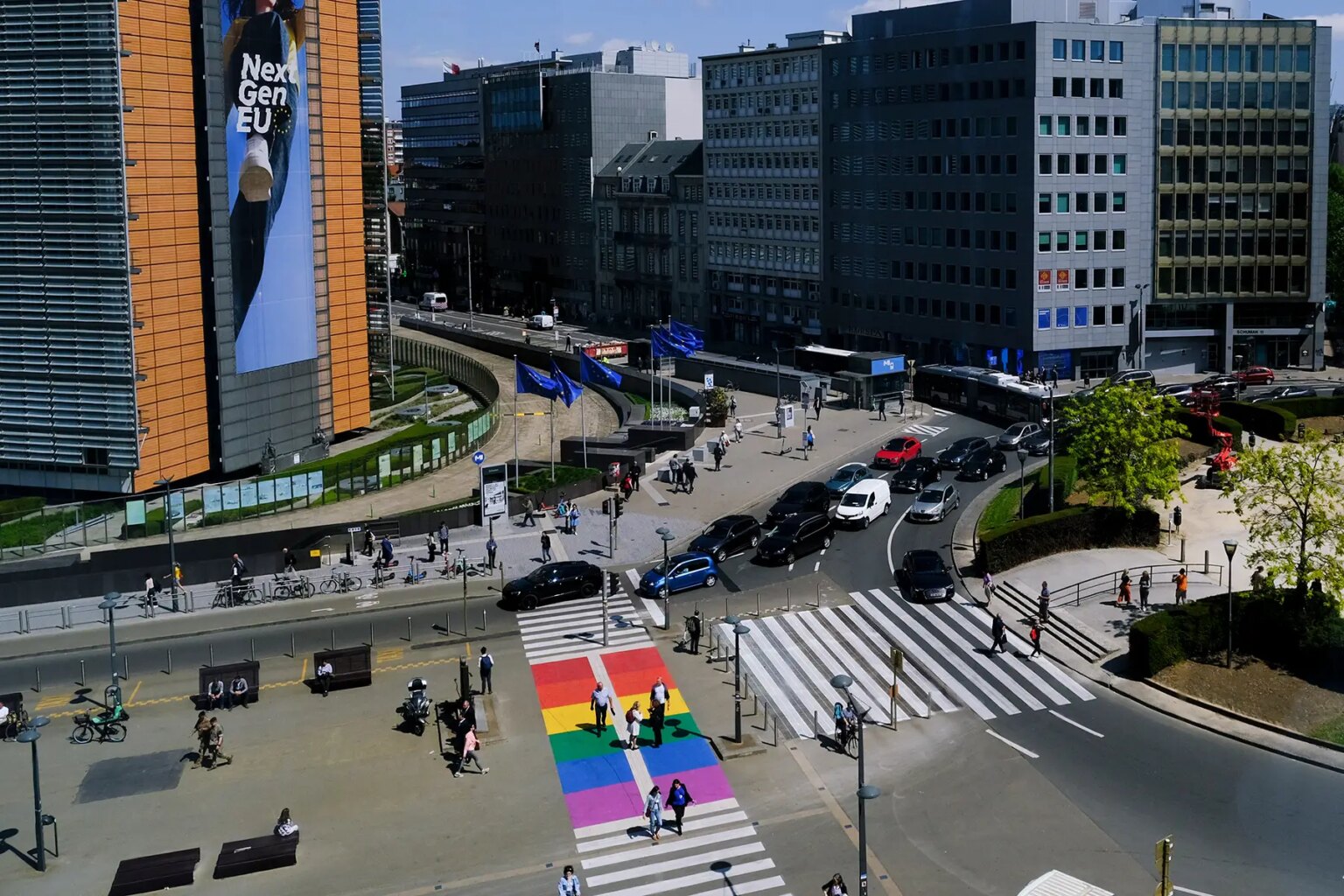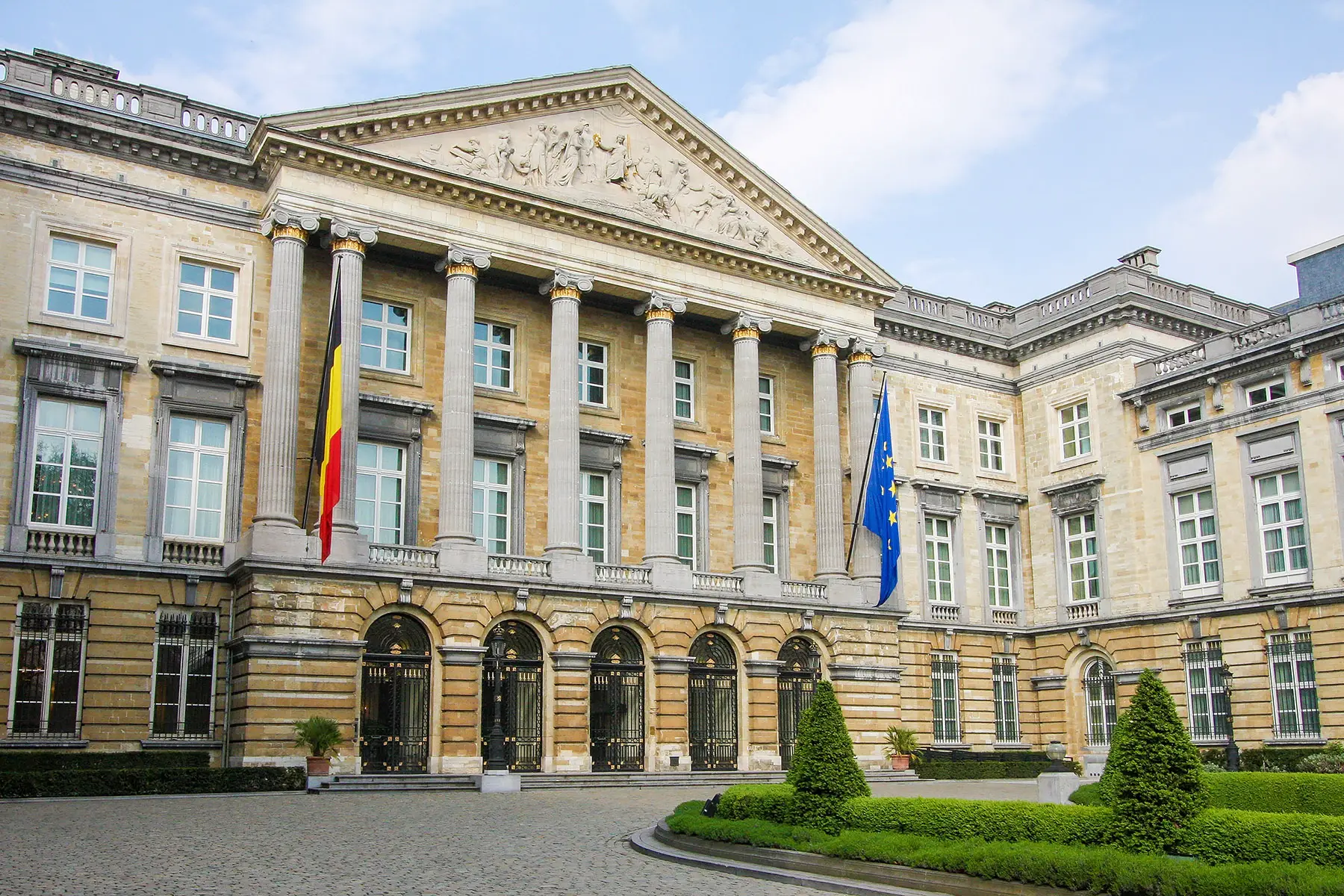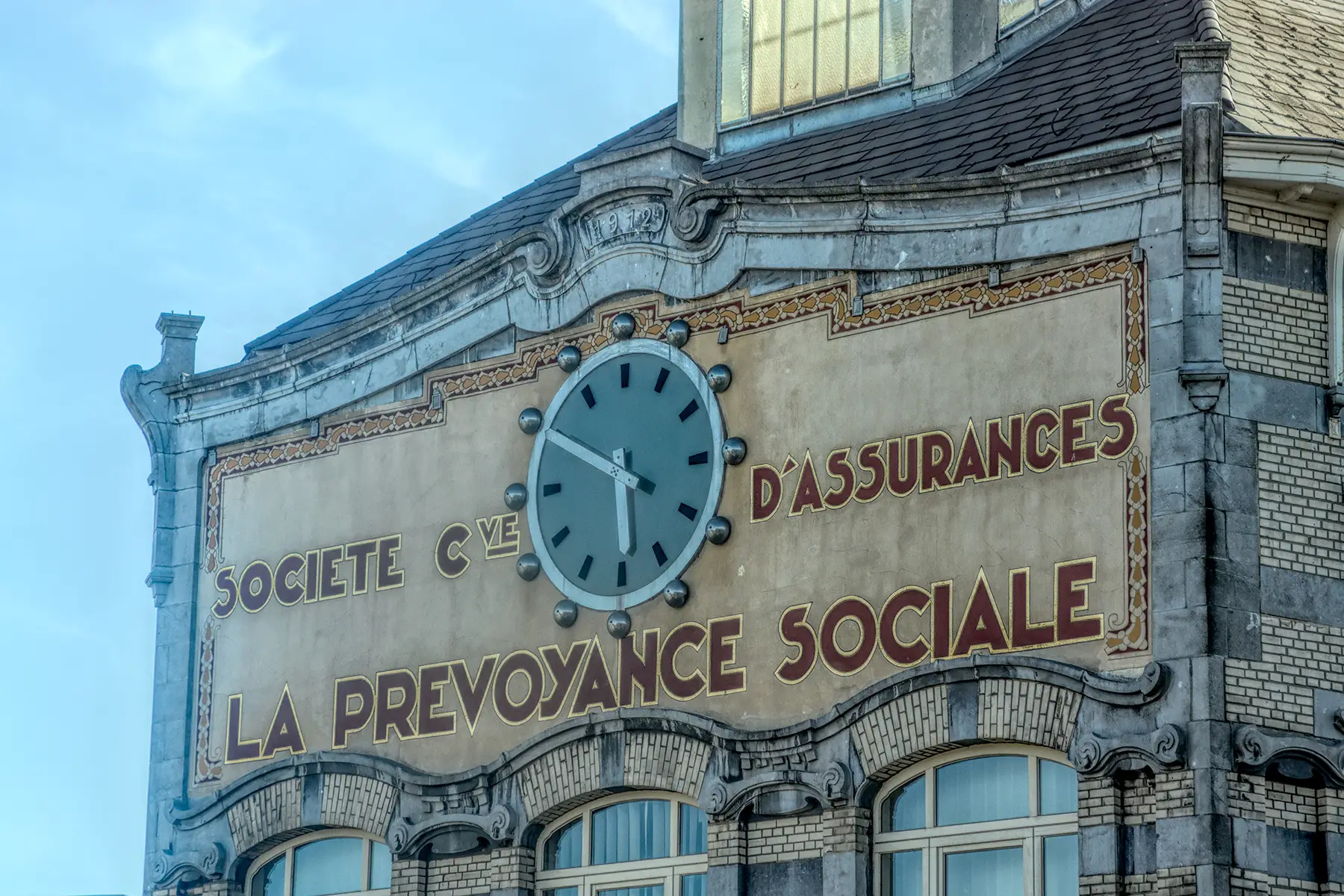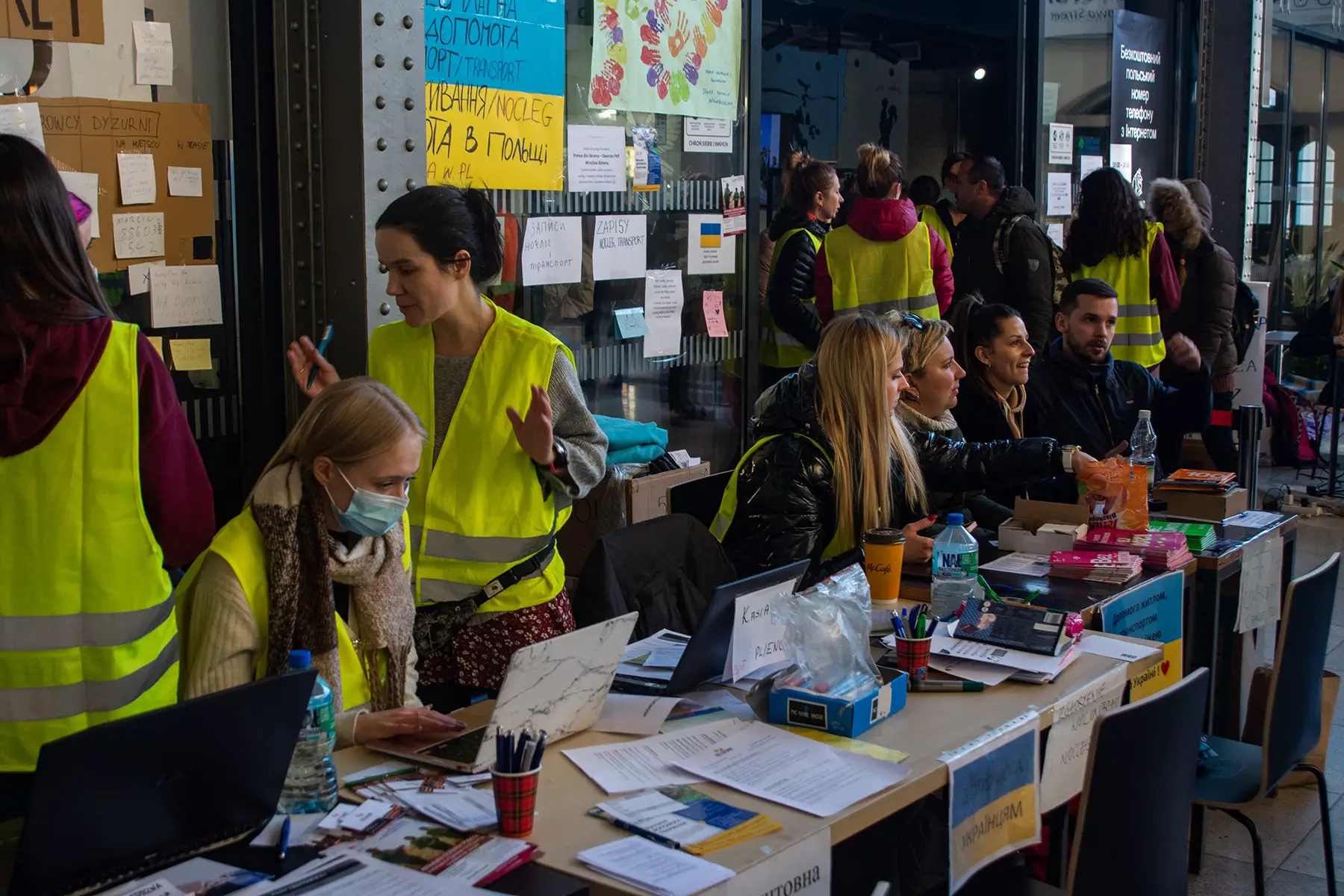If you’ve decided to move to Belgium, it’s essential to be aware of your rights. These will likely impact how you work in the country, participate in society, and perhaps even where you live. All the more important, you need to know how the country deals with your basic freedoms. For example, freedom of speech, having a voice in democracy, and living a life free from discrimination.
As a progressive nation, Belgium enjoys a stable society that makes human rights seem a given. Therefore, the country is eager to remain at the forefront of defining and guarding its human and civil rights through its government and justice system.
- Overview of human rights in Belgium
- Civil rights in Belgium
- Political rights in Belgium
- Social and cultural rights in Belgium
- Workers’ rights in Belgium
- Women’s rights
- LGBTQIA+ rights
- Disability rights in Belgium
- Anti-racism and anti-discrimination legislation
- Refugee rights
- What to do if you experience human rights abuses or restrictions in Belgium
- Human rights organizations in Belgium
- Useful resources
Ground News
Get every side of the story with Ground News, the biggest source for breaking news around the world. This news aggregator lets you compare reporting on the same stories. Use data-driven media bias ratings to uncover political leanings and get the full picture. Stay informed on stories that matter with Ground News.
Overview of human rights in Belgium
Belgium is a member of the United Nations (UN) and a founding member of the EU. As such, human rights in Belgium have several layers of recognition and enforcement. They are protected globally through the UN, regionally through the EU, and nationally through the Belgian Constitution.
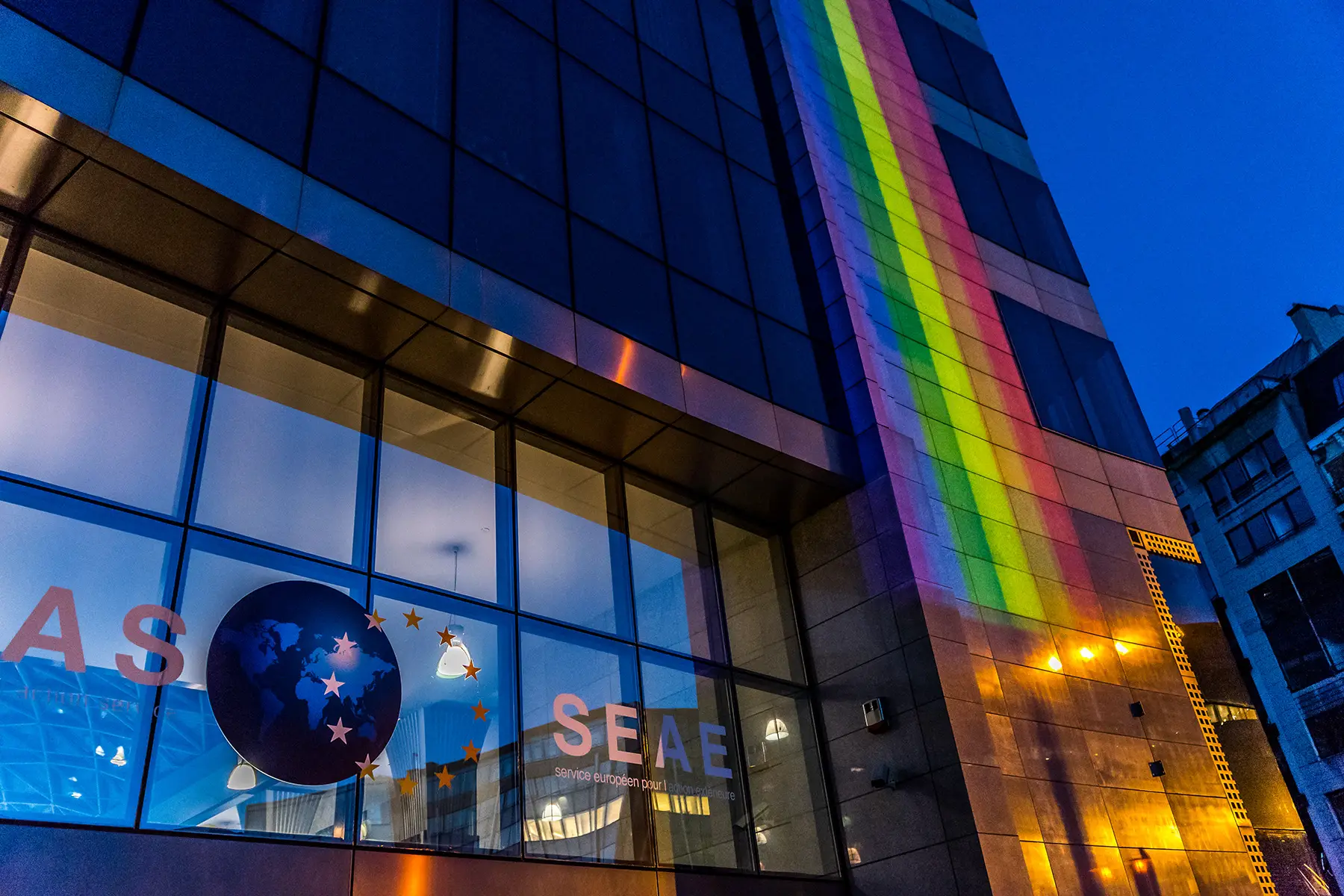
Belgium is a signatory to the UN’s Universal Declaration of Human Rights (UNDHR). This document lays out fundamental human rights such as:
- The right to life
- Prohibition of slavery
- Freedom from torture
- Freedom of expression
- Conscience and religion
- Peaceful association and movement
- Freedom of the press
At the regional level, Belgium is a party to the European Convention on Human Rights (1953), which established the European Court of Human Rights (ECHR). This court hears both individual and interstate complaints, and its judgments are legally binding. More recently, Belgium signed the Charter of Fundamental Rights of the EU (2000). This modern charter expands upon the ECHR, including rights to education, property, and consumers, as well as protection of personal data and the environment.
Within Belgium itself, the Belgian Constitution (1831) guarantees freedom of speech, religion, and the press. It also protects the right to vote and all the rights enshrined in the European Convention on Human Rights. The constitution protects all residents of Belgium.
Belgium generally scores well in indices relating to economic, personal, and press freedom. For example:
- Freedom House gives Belgium 96/100 in its Freedom in the World ranking for political rights and civil liberties.
- The Cato and Fraser Institutes rank Belgium 23rd out of 165 countries in categories relating to economic freedom, individual liberties, and openness of trade.
Civil rights in Belgium
Belgium is a stable and functioning democracy that guarantees and broadly respects political rights and civil liberties. The law guarantees freedom of assembly and association, including the right to protest or join a union. Furthermore, it ranks 18th out of 178 in Transparency International’s Corruption Perceptions Index, suggesting a high level of state transparency and accountability. That said, there have been scandals in recent years due to political officials holding multiple paid positions in public and private companies.
Freedom of speech and the press
On the whole, Belgium provides an excellent level of freedom of speech and press. The Belgian constitution guarantees freedom of speech, although restrictions ban incitements of hatred, such as Holocaust denial.

Reporters Without Borders ranks Belgium 23rd out of 180 countries for press freedom. Although the press is relatively free from political pressure, journalists face online and physical threats and violence from police and protesters. This was especially relevant in reporting on the COVID-19 pandemic – the V-Dem Institute suggests that this led to severe media restrictions during this period.
Arrest and detention
The Belgian justice system is a civil law system. Its criminal process is inquisitorial rather than adversarial. The country’s law prohibits arbitrary arrest, and any person has the right to challenge the lawfulness of their arrest and detention in court. Defendants have the right to remain silent and to know the charges against them – they can be in custody for only 48 hours without being charged. The authorities extended this period in 2017 following terrorist attacks in 2015 and 2016. If charges are brought, the defendant has the right to an attorney, a fair and public trial, and the presumption of innocence.
Belgium’s attitudes towards minorities
While members of minority groups have full political rights, and many political parties have senior members of different races, ethnicities, and religions, there are still plenty of challenges. For example, Ihsane Haouach, who wears a headscarf, resigned as government commissioner after anti-Muslim harassment, including from a politician, Georges-Louis Bouchez.
Religious face coverings have been banned in public locations since 2011 – this, plus a rise in nationalist and far-right politics in Flanders, have led to a more pronounced and accepted anti-Muslim attitude. In addition, high-profile cases highlight discrimination in the job market. Immigrants, Belgians of African descent, and Romany residents also experience discrimination.
Political rights in Belgium
While all men have been allowed to vote in Belgium since 1893, women did not have this right until 1948. However, they could first cast their ballot a year later, in the parliamentary election on 26 June 1949. Today, Belgians over 18 can vote, and those over 16 may vote in European Parliamentary elections. In fact, voting is compulsory for Belgian citizens in some polls, and failure to cast a ballot can result in a fine or losing the right to vote.
Eligibility to vote in Belgium varies depending upon the type of election and the citizenship or residency status of the voter. Non-citizens can vote in some elections. All elections require registration beforehand, but Belgian citizens are automatically put on the voting rolls.
European Parliament elections
Voting in this election is open to EU citizens only – they can vote in European Parliamentary elections wherever they live in the EU. However, you may only vote in one country. To vote for candidates on the Belgian candidate list, you must register with the municipality and enroll to vote before the official deadline – usually several weeks before the election.

Federal Parliament elections
Voting in this election is mandatory for Belgian citizens. Some permanent residents who have lived in Belgium for five years can also vote – when you register with the town hall, you can also be put on the electoral roll.
Regional Parliament elections
Starting in 2024, voting in regional elections (Flemish, Walloon, Brussels Capital Region, German-speaking) will no longer be mandatory. However, non-citizens who have been living in Belgium for five years may be allowed to vote.
Municipal elections
Again, from 2024, voting in municipal elections will no longer be mandatory, and non-citizens will be allowed to vote, provided they have registered and have lived in Belgium for five years.
Social and cultural rights in Belgium
Belgium performs highly in social indicators in the OECD’s Better Life Index, scoring above average in income, education, housing, health, and life satisfaction. However, it receives a below-average score for community and social connections.
The right “to lead a life in keeping with human dignity” is guaranteed by the Belgian Constitution. These rights include:
- A free choice of occupation
- Fair terms of work and remuneration
- Collective bargaining
- Social security, healthcare, and social, medical, and legal aid
- Decent housing
- Protection of a healthy environment
- Cultural and social fulfillment
- Family allowances
The constitution also guarantees the right to free public school education and freedom of religion. However, as discussed, some religious groups, such as Muslims, face discrimination in practice.
Everyone in Belgium is entitled to social security, but there are restrictions for asylum seekers, refugees, and non-residents. Additionally, people without legal residency can only access emergency medical services.
Workers’ rights in Belgium
Most EU citizens do not need work permits to work legally in Belgium. New Member States of the EU may be subject to some restrictions on the free flow of labor, although workers with high-demand skills may be exempt from these restrictions. In contrast, other foreign nationals must apply for a residency permit with working rights before moving to Belgium.
Asylum seekers awaiting a decision on their claim are allowed to work and do not need to apply for a separate work permit. In addition, they are entitled to a free assistance program and vocational training. Nevertheless, finding gainful employment can be difficult due to residency status uncertainty, language barriers, and discrimination.
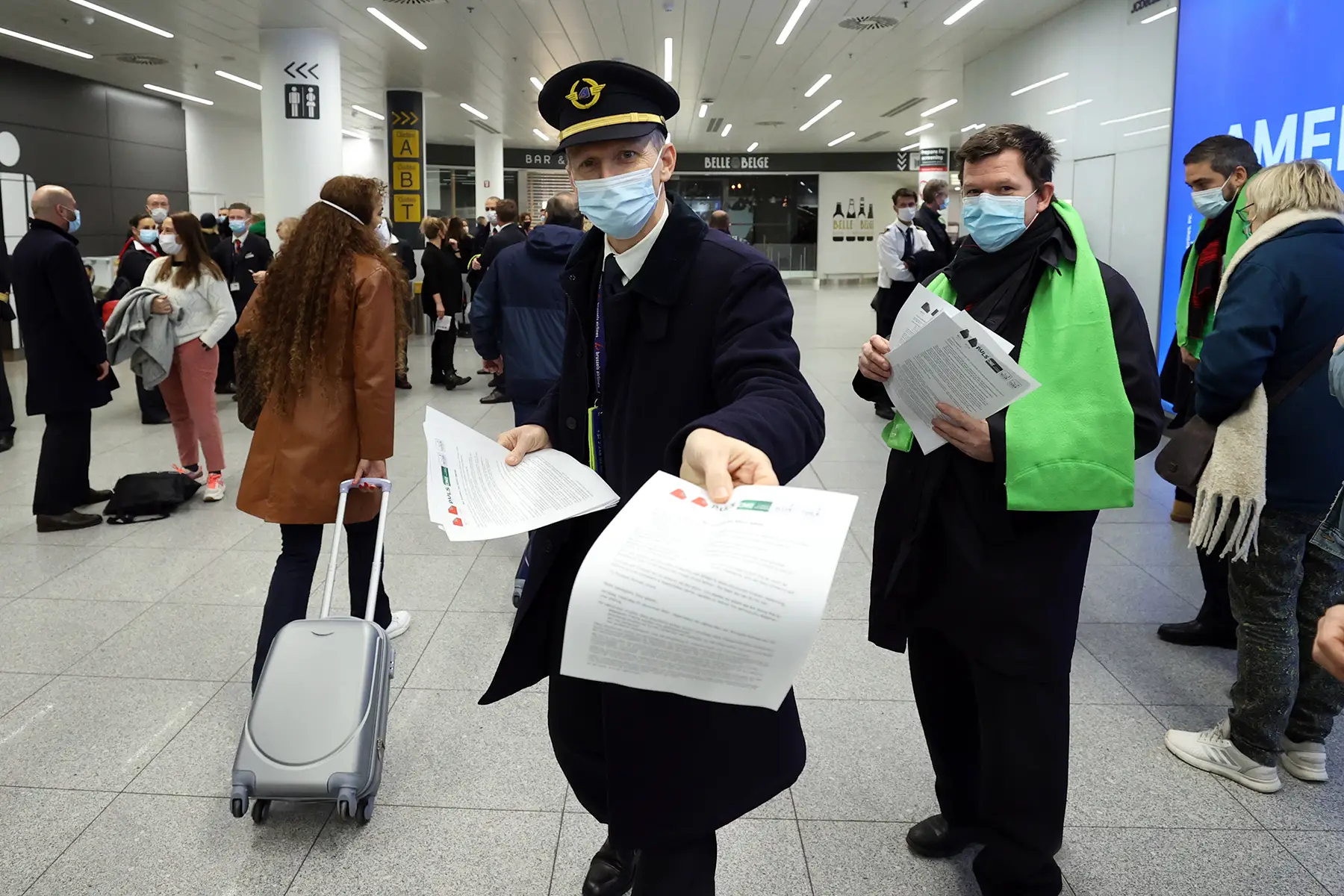
Belgium has some of Europe’s most worker-friendly labor laws, guaranteeing humane working hours and healthy conditions. It also has Europe’s second-highest minimum wage, which the government reviews regularly.
As a member of the International Labour Organisation (ILO), Belgium monitors employment practices to protect workers’ rights. Furthermore, all Belgian workers have the right to join a trade union without fear of reprisal. The three main trade unions in Belgium align with Christian, socialist, and liberal movements.
In addition, recent reforms have adapted the working world to the current climate, further improving working conditions. Its main points included:
- Allowing workers to split their working hours between four days instead of five
- The right to disconnect from work communications outside of working hours
- Protections for gig workers
- Funding for career-related training
Women’s rights
Women’s rights in Belgium have come a long way since they first received the right to vote. Indeed, the Belgian constitution states that men and women are equal, and the gender pay gap has halved over the past ten years. The country now has the sixth-lowest gender pay gap in Europe and ranks 27th out of 153 countries in the World Economic Forum’s Global Gender Gap Report. Still, despite Belgium’s efforts to close the pay gap, fewer women work full-time, perhaps due to taking on the bulk of domestic work and childcare.
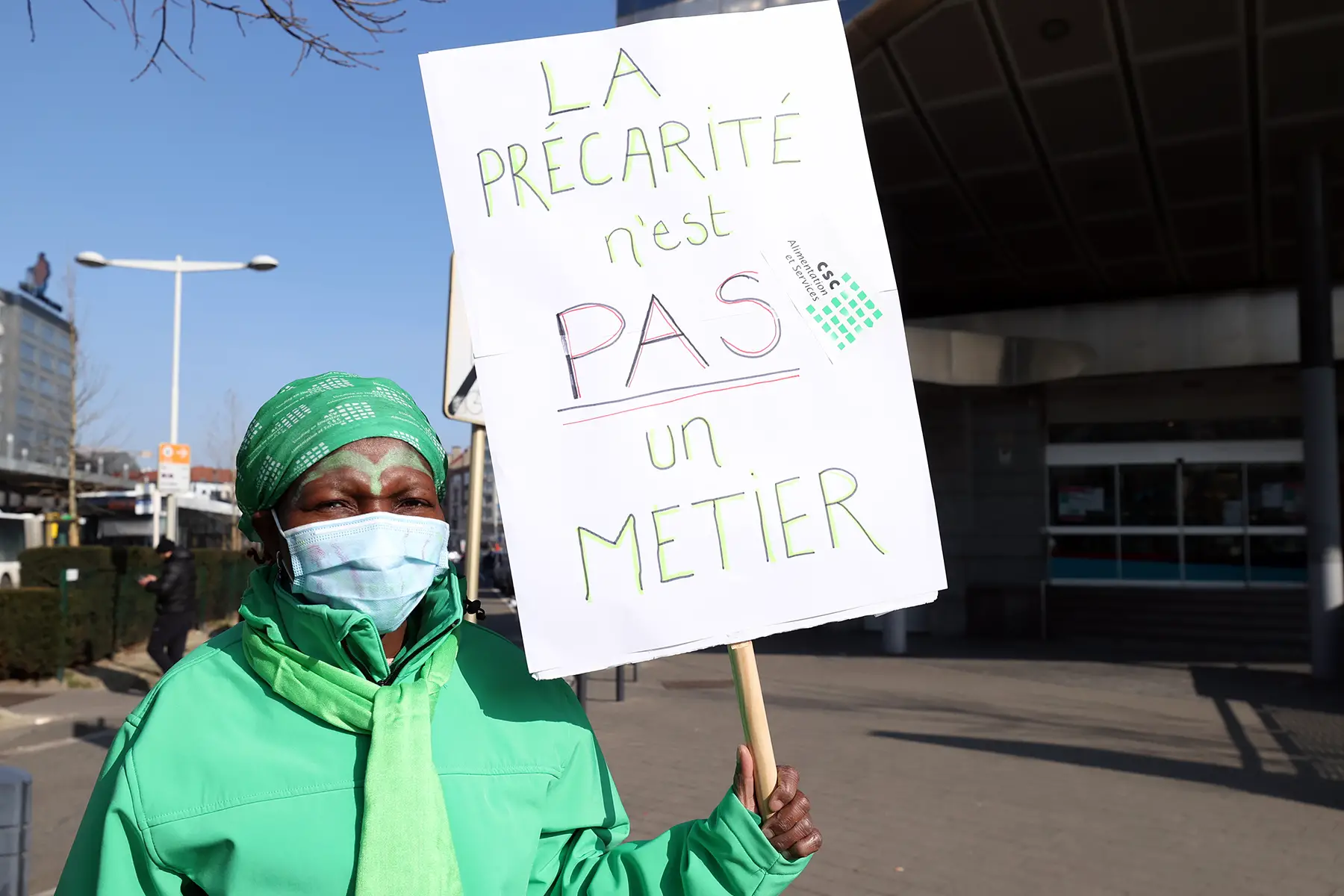
Concerning reproductive freedom in Belgium, abortion is legal until 12 weeks after conception. It must take place in an abortion clinic or a hospital that offers the service. Notably, this procedure is inexpensive for Belgian residents but costs more for non-residents. After 12 weeks, abortion is permitted only if there is a risk to the woman’s life or if the fetus shows the risk of severe and incurable illness or disability. If you request an abortion, you must wait six days before the procedure. Some in Belgium have been pushing for abortion to be legal up to 18 weeks after conception and for the waiting period to be reduced to 48 hours.
LGBTQIA+ rights
Belgium has some of the most progressive policies on gay rights in Europe. As such, the International Lesbian, Gay, Bisexual, Trans, and Intersex Association (ILGA-Europe) ranks Belgium as the third most LGBTQIA+-friendly country on the continent. Same-sex marriage has been legal since 2003 and adoption since 2006. However, ILGA-Europe recommends introducing explicit laws that prohibit hate crimes related to sexual orientation, gender identity and expression, and sex characteristics.
Since 2018, it has been legal to change gender in Belgium without surgery. Instead, the person who wishes to change their gender can declare their intention at the municipality or town hall and wait for the public prosecutor’s decision. Although the law allows for relatively progressive transgender rights, Rainbow Europe notes that non-binary and intersex people still lack provisions in the law.
Disability rights in Belgium
In 2022, Belgium amended its constitution to include a section guaranteeing that every person with a disability has the right to full inclusion in society. As a result, it is not only illegal to discriminate against people with disabilities, but authorities must also ensure that public services are accessible to them.
In addition, people with disabilities receive allowances through social security, including training and occupational therapy. There is also an income replacement allowance for people whose disability restricts their ability to work. However, it is conditional based on age, nationality, place of residence, and household income.
Despite Belgium’s legal provisions, many Belgians report a lower standard of living due to extra costs associated with their disability. In addition, they experience discrimination, including stereotyping and even violence.
Anti-racism and anti-discrimination legislation
Belgium has many laws designed to prohibit racism. Nevertheless, in May of 2021, the UN Committee on the Elimination of Racial Discrimination (CERD) officially recommended that Belgium investigate allegations of racist incidents by the police. It also recommended an explicit prohibition of racial profiling and advised increased racial diversity in its police force.
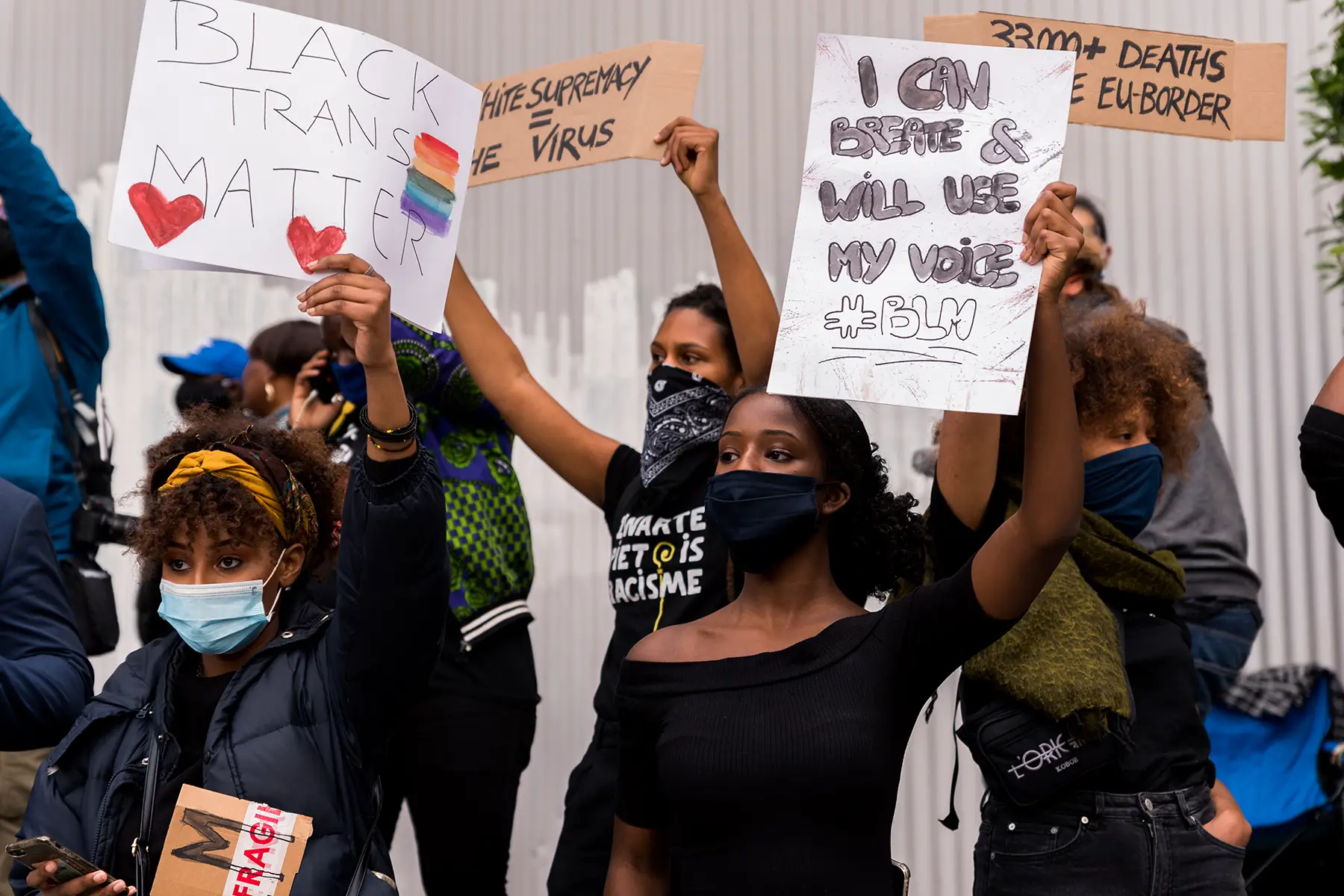
Specifically, there have been accusations of Belgian police using excessive force against people from the Middle East and North Africa. Complaints of racism rose by 50% in 2020, according to Unia, Belgian’s national anti-discrimination authority. Following the unexplained death of 23-year-old Ibrahim Barrie in police custody in 2021, there were protests where police used tear gas.
Refugee rights
Belgium has seen a significant increase in its refugee population over the past ten years. In 2021, there were 25,971 applications for asylum, and as of June 2022, there were also around 52,000 Ukrainian refugees in Belgium. The asylum process is managed by the Commissioner General for Refugees and Stateless Persons (Commissariaat-generaal voor de Vluchtelingen en de Staatlozen, CGVS).
CGVS provides a guide to seeking asylum in several languages. Upon arriving in Belgium, asylum seekers must register at the Immigration Office, with border authorities, or at the detention center where they are being held. They can then request accommodation in a refugee center, material help, and guidance while they await their formal interview, usually months later. This interview determines which residence status they receive if any. They have the right to have legal assistance and a trusted person present. If rejected, they can appeal the decision and qualify for legal counsel. The authorities cannot deport them during the appeal process.
Currently, there is a large backlog of cases and refugee centers in Belgium experience overcrowding. In addition, in 2021, hundreds of refugees went on hunger strike to demand formalized residency.
In the spring of 2022, the EU issued a temporary protection directive for Ukrainian nationals and residents fleeing the Russian invasion. This gives them the right to work, residency, education, social allowances, and medical assistance for one year, with the possibility of an extension. However, to enjoy these rights, refugees must register with local authorities – a process that involved lengthy queues at the beginning of the crisis. Refugees from other countries have also spoken out about Belgium’s unfair treatment of non-Ukrainian asylum seekers.
What to do if you experience human rights abuses or restrictions in Belgium
Unfortunately, although Belgium provides its residents with many liberties, discrimination still occurs. Should you have a problem with public services, you can contact an Ombudsman. These include:
- The Federal Ombudsman
- Flanders Ombudsman (Vlaamse Ombudsdienst)
- Wallonia/Wallonia-Brussels Ombudsman (Le médiateur)
- Ombudsdienst der Deutschsprachigen Gemeinschaft Belgiens – for the German-speaking community
There are also several bodies within Belgium that deal with specific types of discrimination. For example, Unia provides a platform for reporting racism and hate speech. People who experience gender discrimination can contact the Institute for Equality between Men and Women.
At a higher level, if you feel that a country or EU institution or legal act has violated your human rights, there are several bodies you can contact, including the European Court of Human Rights.
Human rights organizations in Belgium
Several human rights organizations promote the freedoms of people in Belgium and all over the world. These include:
- International Federation for Human Rights – An international human rights NGO based on the Universal Declaration of Human Rights
- Belgian League of Human Rights – Ligue de Droits Humaine (LDH) combats infringements in French-speaking regions of Belgium
- Human Rights Watch – An international organization documenting human rights abuses
- Avocats Sans Frontieres – This international NGO defends human rights and supports justice
Useful resources
- belgium.be – official government website
- Belgian Constitution – English translation
- Unia – reporting racism and hate speech
- IGVM – Institute for Equality between Men and Women to report gender-based discrimination
- ECHR – The European Court of Human Rights
